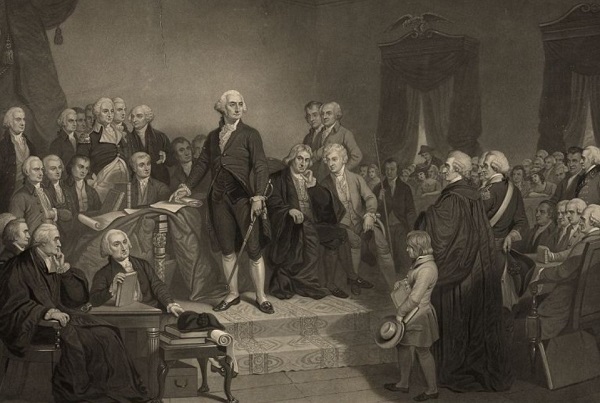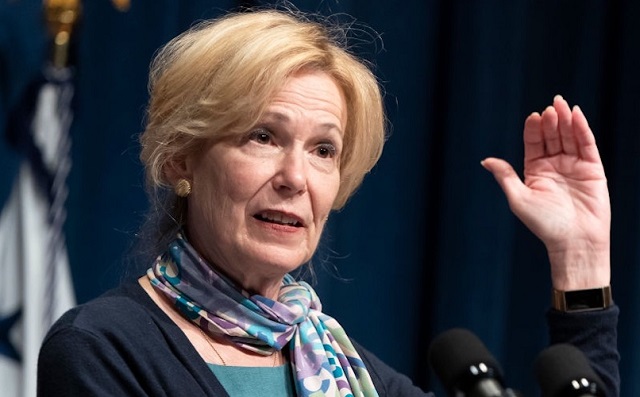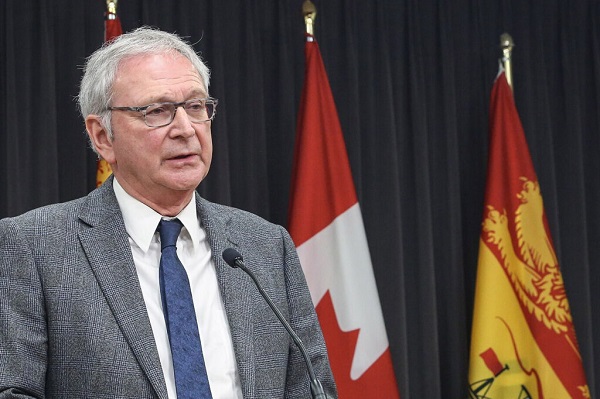Alberta
Province will step in to help Grande Prairie replace RCMP with Municipal Police Force

Alberta funds community policing in Grande Prairie
Alberta’s government is ready to support Grande Prairie in establishing a community-led municipal police service to find solutions unique to their community.
Grande Prairie is in the final stages of deciding to create a municipal police service and Alberta’s government is ready to help them do so. If passed, Budget 2023 will provide $9.7 million over two years toward the costs associated with starting a local police service.
“Alberta’s government is ready to support Grande Prairie as the city improves public safety by exploring new and innovative approaches toward local policing. Having a community-led and focused police service will ensure Grande Prairie is finding unique solutions that will better serve their region.”
The City of Grande Prairie is currently policed by the RCMP under an agreement between the municipality and Public Safety Canada. A recent review of policing independently completed by the city found a significant level of concern with the current policing arrangement. To address these concerns, Grande Prairie commissioned a detailed transition study and public engagement process in September 2022 to consider other police service models.
If Grande Prairie proceeds with setting up a municipal police service, provincial funding will help to offset startup costs such as equipment, uniforms, vehicles and information technology.
“This initial funding gives us confidence that the province will support the City of Grande Prairie should council decide on March 6 to proceed with a municipal police service model.”
The province recognizes that startup costs could be a barrier for communities that want to establish a municipal or regional police service. Alberta’s government supports municipalities studying and developing alternate policing models as a way to address public safety concerns and ensure policing priorities are aligned with local priorities. Every municipality and region has unique needs and they are in the best position to decide how to improve safety in their community.
“As Grande Prairie works toward establishing its own community-driven police force, the Alberta government is fully supportive. This is an excellent example of a made-in-Alberta solution that will strengthen enforcement.”
“Crime has been an ongoing concern for rural Albertans and the community hubs that support policing of these large, sparsely populated areas. I am pleased to work with the City of Grande Prairie to support alternatives to address policing concerns going forward.”
Funding for Grande Prairie is based on the city going ahead with a municipal police service. If Grande Prairie establishes a municipal police service, the provincial government is prepared to work closely with municipal officials to ensure that public safety is maintained during any transition period.
Quick facts
- Under Alberta’s Police Act, towns and cities with populations greater than 5,000 are responsible for their own policing.
- The Police Act gives municipalities the option of having their own police service, forming a regional policing arrangement or contracting for the provincial police’s services (i.e., the RCMP under Alberta’s provincial police service agreement).
- In 2022, Alberta’s government established the Community Policing Grant, which offers Indigenous communities and municipalities up to $30,000 toward developing a business case examining local needs, capital requirements and transition considerations
Alberta
Province announces next step to revamped health care system

Setting the foundation for a refocused health system
Proposed legislation would support the refocusing of Alberta’s health care system to ensure Albertans get the care they need when and where they need it.
On Nov. 8, 2023, Alberta’s government announced plans for a refocused health care system to ensure patients are receiving the care they need, when and where they need it. To achieve this, Alberta’s government will be creating four new organizations, one for each priority health services sector: acute care, primary care, continuing care and mental health and addiction.
If passed, the Health Statutes Amendment Act would enable the government to take the necessary next steps to refocus the province’s health care system. The legislation would ensure Albertans have a system that works for them by prioritizing their need to find a primary care provider, receive urgent care without long waits, have access to the best continuing care options and obtain excellent mental health and addiction treatment.
“We are taking another step toward improving health care by updating legislation and enabling the governance and oversight required to refocus the health system. The critical improvements to transparency and accountability will help support the successful refocusing of the health care system to one that is responsive, effective and reflects the needs and priorities of Albertans today and for future generations.”
The Health Statutes Amendment Act will enable the transition from one regional health authority, Alberta Health Services, to an integrated system of four sector-based provincial health agencies including primary care, acute care, continuing care and mental health and addiction. The agencies will be responsible for delivering integrated health services, ensuring Albertans receive timely access to care, regardless of where they live.
The Health Statutes Amendment Act establishes roles for an oversight minister and sector minister. The Minister of Health will take on the role of oversight minister, responsible for setting the strategic direction of the overall health system. A sector minister will be responsible for a specific health services sector. For example, the sector minister for Recovery Alberta is the Minister of Mental Health and Addiction. On the recommendation of the oversight minister, additional health service sectors may be established and designate a minister responsible for that newly created sector.
Enhanced government oversight will help Alberta’s government to better direct resources to the front lines where they are needed the most, improve patient care overall and support health care professionals.
“Mental health and addiction have been growing issues within our society and need to be prioritized within our health care system. Amid an addiction crisis, a refocused health system will allow for mental health and addiction services to get the attention, oversight and focus they need. Recovery Alberta would allow for improved mental health and addiction care across the province as an important part of an integrated health system.”
“Refocusing Alberta’s healthcare system is a crucial step towards ensuring that we can deliver a framework that prioritizes accessibility, accountability, and patient-centered care. By streamlining operations, improving oversight and fostering collaboration, we are setting a strong foundation for a healthcare system that is better equipped to address the diverse needs of each of our communities.”
The legislation will enable the minister of health to transfer employees or classes of employees from AHS to the new sector-based organizations, once established. During the transition period, AHS will be enabled to continue operating as a regional health authority. Employee transfers will be seamless, maintaining existing bargaining relationships and collective agreements. This will ensure stability for the workforce, unions and government as the health system refocus is implemented. There will be no job losses for staff who transition into the new organizations.
Amendments to be made to existing legislation
The Health Statutes Amendment Act includes amendments to the Regional Health Authorities Act and the Health Information Act, which have not been updated since the 1990s.
As part of these amendments, the name of the Regional Health Authorities Act will change to the Provincial Health Agencies Act. The amended Provincial Health Agencies Act will remove outdated references to allow the transition from a single regional health authority to a unified, sector-specific provincial health system. This will clarify the scope and accountabilities of provincial health agencies and health service providers going forward.
The amendments will also place responsibility on the provincial health agencies for operational planning and oversight of clinical service delivery across the province. This will enable provincial health agencies to set priorities in the provision of health service delivery. The agencies will also be tasked with sharing information and collaborating closely to support seamless patient care as the transition to the refocused health care system takes place.
Alberta’s government is committed to ensuring that patient information continues to remain safe and secure through this transition. Amendments to the Health Information Act will be introduced to support the new health system refocus and to support the establishment of the Canadian Centre of Recovery Excellence. These amendments will allow the Ministry of Health, the Ministry of Mental Health and Addiction, the four new provincial health agencies, the Health Quality Council of Alberta and Canadian Centre of Recovery Excellence to have the authority to use health information for health system purposes.
If passed, the Health Statutes Amendment Act will enable Recovery Alberta, the mental health and addiction provincial health agency, to begin operating in the summer of 2024. The primary care, acute care and continuing care provincial health agencies are expected to be established in the fall.
Quick facts
- Consequential amendments are changes made to existing legislation due to new legislation being passed. These amendments are necessary to ensure legislative alignment with the proposed amendments to the Regional Health Authorities Act.
- To support the Regional Health Authorities Act amendments and ensure alignment, 43 other acts are being consequentially amended – for example, to replace references to “regional health authority” with “provincial health agency” where necessary.
- AHS will remain a key provider of health services, and in fall 2024 will transition to focusing on the provision of acute care services.
- Alberta’s government introduced the Canadian Centre of Recovery Excellence Act which, if passed, will establish the Canadian Centre of Recovery Excellence (CoRE) as a public agency that would support the Government of Alberta, including Mental Health and Addiction, and Recovery Alberta in advancing the Alberta Recovery Model.
Related information
- Establishing the future of Alberta health care
- Refocusing health care in Alberta
- Recovery Alberta
- Canadian Centre of Recovery Excellence
- Bill 22: Health Statutes Amendment Act, 2024
Related news
- Refocusing on patient-centred care (Nov. 8, 2023)
Alberta
Red Deer Hospital Lottery – Second Chance Early Bird Prize!!!

|
|
|
|
|
-

 Brownstone Institute2 days ago
Brownstone Institute2 days agoMedical Elites’ Disgrace Over Ivermectin
-

 conflict2 days ago
conflict2 days ago‘It Makes No Sense’: Experts Puzzled By Biden Admin’s Claim That Rafah Invasion Wouldn’t Help Israel Defeat Hamas
-

 Bruce Dowbiggin1 day ago
Bruce Dowbiggin1 day agoWhy Do The Same Few Always Get The Best Sports Scoops?
-

 Opinion2 days ago
Opinion2 days agoThe American Experiment Has Gone Down In Flames
-

 COVID-192 days ago
COVID-192 days agoThe New York Times Admits Injuries from COVID-19 Shots
-

 Energy1 day ago
Energy1 day agoBuckle Up for Summer Blackouts: Wind Is Already Failing Texas in Spring
-

 Energy1 day ago
Energy1 day agoFederal government continues to reject golden opportunities to export LNG
-

 COVID-191 day ago
COVID-191 day agoFormer COVID coordinator Deborah Birx now admits jabs could have injured ‘thousands’











